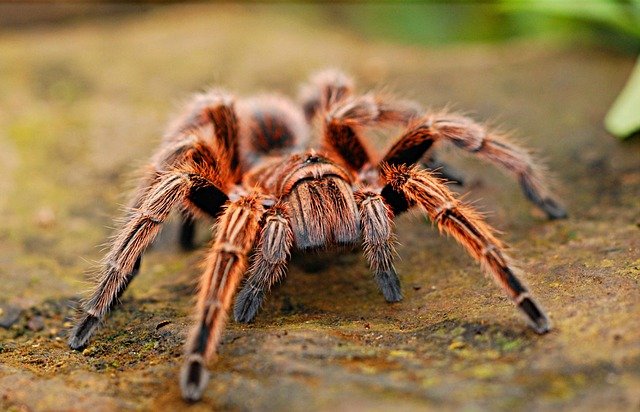More Britons are talking about tarantulas than ever before. Recent news around missing pet tarantulas, rescues by the RSPCA, and a thriving exotic pet trade has pushed these misunderstood arachnids into the spotlight. For some, tarantulas are the stuff of nightmares; for others, they’re captivating creatures that make for seriously unique pets.
Encounters Closer to Home
It may come as a surprise to some, but tarantulas have been making the headlines in the UK. Earlier this month, an incident emerged in Bristol when a parcel containing two substantial tarantulas was misdelivered, sparking panic in the community. RSPCA inspectors across the country also periodically rescue and rehome abandoned tarantulas, such as a recent case where several were found dumped in Sussex during a cold snap. The message from animal experts is clear: these spiders need very specific care and should never be released into the wild or abandoned without thought for their well-being.
The Allure of Tarantulas as Pets
Despite—or perhaps because of—their fearsome reputation, tarantulas are growing in popularity as pets in the UK. Societies such as the British Tarantula Society offer advice and community support for enthusiasts. The most popular pet species, such as the Curly Hair tarantula (Tliltocatl albopilosus), are widely available in Britain and admired for their docile nature. Tarantulas can be low-maintenance by some standards; however, they demand very particular temperature, humidity, and enclosure requirements to truly thrive.
Choosing a tarantula is not a decision to take lightly. There are distinct differences between “New World” species, which tend to be calmer and easier for beginners, and “Old World” tarantulas, known for being more defensive and tricky even for experienced keepers. Importantly, not every tarantula makes a good pet, and prospective owners should always do their homework to ensure proper welfare.

Public Perception: Fear, Fascination, and Fun
While some UK households welcome these spiders, public perception remains mixed. Many Britons feel uneasy about large spiders in the home. According to a YouGov survey, about 60% would be reluctant to date someone who owns a tarantula, citing squeamishness and concerns about safety in the house. At the same time, cultural fascination persists, with tarantula expos and societies thriving, and children curious to learn more about these arachnids.
Conservation and the UK’s Role
Tarantulas, in their natural habitats around the globe, face considerable threats. The illegal trade in tarantulas for collectors has boomed in recent years, raising alarms among conservationists. Many species, especially those with limited geographical ranges, risk extinction from over-collection and habitat loss. The pet trade in Britain and elsewhere is subject to increasing regulation, with captive breeding programmes advocated as a sustainable alternative to wild-caught spiders. Experts warn, though, that without careful monitoring, even captive breeding can perpetuate harmful practices.
In a rare British success story, conservation work at Chester Zoo has seen tens of thousands of Fen Raft spiders released back to their native wetlands, helping rescue the species from the brink of extinction in the UK. These efforts demonstrate both that spiders can be vital indicators of ecosystem health and that public engagement can deliver real biodiversity wins.
Tarantula Safety and Handling
Contrary to some fears, tarantulas are not aggressive towards humans and seldom bite without severe provocation. When bites do occur, they are usually no worse than a bee sting for most people, unless someone has a particular allergy. The greatest risk comes not from venom but from the spider’s barbed hairs, which they can flick when threatened. These hairs can cause irritation to those sensitive or unaccustomed to handling them. Wildlife experts and pet societies urge people never to handle tarantulas in the wild, both for human safety and the animal’s well-being.
Living With—And Appreciating—Tarantulas
For those who do own tarantulas, there are rewards in observing their secretive habits, striking colours, and intricate web-building skills. These spiders tend to be more active by night, enjoying the warmth and security of a carefully designed enclosure. Owners gain an appreciation for nature’s less cuddly but endlessly fascinating creatures. Education and responsible ownership are the keys to coexisting with tarantulas and changing public perceptions for the better.
The Takeaway
The renewed focus on tarantulas in UK news signals a changing relationship with these remarkable spiders. Thanks to conservation success stories, increasing interest as pets, and an expanding community of responsible enthusiasts, tarantulas are no longer simply horror film fodder. Their real lives are much more intriguing—and, for those willing to learn, even a little heartening.
Whether you find tarantulas terrifying or intriguing, their unexpected popularity is helping foster respect for one of nature’s most misunderstood beings. And as British conservators and enthusiasts have shown, with care and curiosity, even the hairiest of houseguests can find a home.
Legislation and the Exotic Pet Trade in the UK
The import and sale of tarantulas in the UK is closely regulated. The Department for Environment, Food & Rural Affairs (DEFRA) oversees animal welfare laws that apply to exotic pets, including requirements on housing, breeding, and transportation. Some rare or endangered tarantula species are protected under CITES (the Convention on International Trade in Endangered Species), restricting their trade and movement both in and out of the country.
Enthusiasts are urged to buy captive-bred spiders from reputable sellers to ensure they are not contributing to the illegal wildlife trade. Reputable pet shops and breeders usually supply documentation confirming a spider’s origin, which is increasingly important as scrutiny around exotic pet ownership grows. For anyone interested in owning a tarantula, understanding the latest regulations is essential for both legal and ethical reasons.
Conclusion:
Tarantulas are becoming increasingly prominent in the UK, both as fascinating pets and as subjects of public curiosity. While their presence can inspire unease, greater education and exposure—through reputable pet shops, wildlife parks, and conservation initiatives—are helping shift perceptions. With responsible care and awareness, tarantulas can be appreciated for the unique and remarkable creatures they truly are, fostering both respect and understanding within the British public.
Read More: Shane Tamura: A Tragedy That Shook Two Nations

